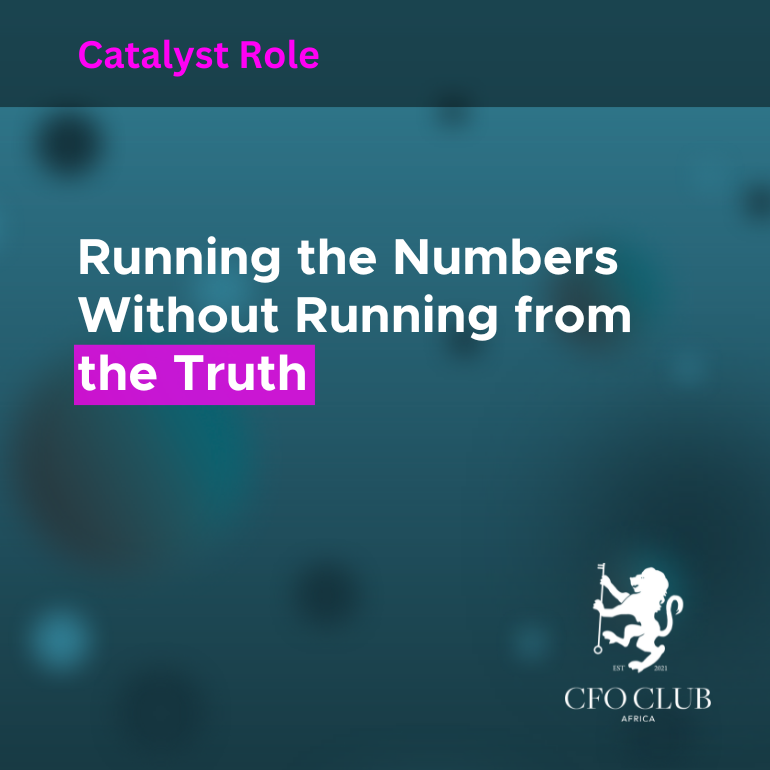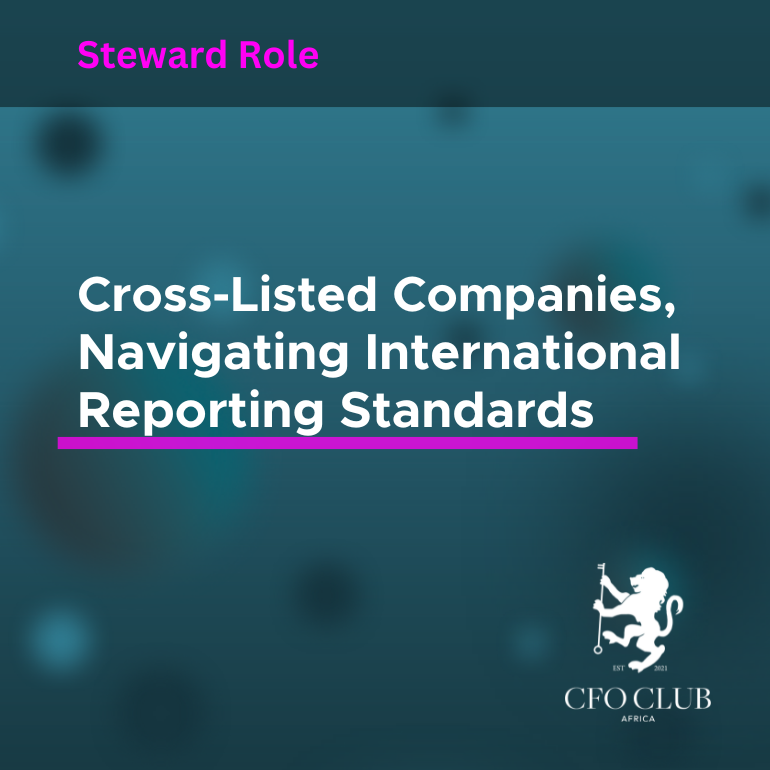Running the Numbers Without Running from the Truth
Running the Numbers Without Running from the Truth
No one sees the cracks forming in a business’s foundation quite like the CFO. Before the headlines, before the boardroom fallout, the numbers tell a story – and it’s your responsibility to make sure it’s the truth. A strong ethical foundation is more than good practice; it’s a strategic imperative. Stakeholders demand transparency, regulators are increasingly vigilant, and employees want to work for businesses they can trust. For the Chief Financial Officer, integrity cannot be relegated to policy documents or compliance manuals. It must be lived, demonstrated, and embedded across every financial decision, every forecast, every conversation with the board.
This article unpacks what it truly means for a CFO to lead with integrity – not just in word, but in systems, signals, and strategic influence.
Integrity as Strategic Currency
Integrity isn’t a soft skill. It’s hard-edged capital in boardrooms, funding rounds, and investor briefings. A CFO’s personal credibility can be the deciding factor in whether the business secures financing or weather a reputational storm. When financial decisions are grounded in integrity, they tend to be more robust, less reactive, and ultimately more sustainable. Ethical leadership is no longer a moral footnote; it is central to long-term value creation.
Integrity also future proofs the business. A culture that prizes honesty over expediency is more likely to detect emerging risks early, correct the course when needed, and maintain stakeholder confidence even in difficult periods.
The CFO Sets the Ethical Pace
While the CEO may articulate the company’s purpose, the CFO gives ethics operational legs. You see the numbers before anyone else. You know when revenue recognition feels too optimistic, when provisions are shaved to meet a ratio, or when a deal is being pushed through with too much urgency and too little scrutiny.
The ethical bar in finance isn’t just what’s legal. It’s what’s responsible. That means calling out issues even if they’re technically permissible. It means modelling professional scepticism and rejecting creative accounting, even when under pressure to “make the numbers work.”
Tone from the top isn’t a memo. It’s what people see their leaders do. As a CFO, your actions ripple down to finance teams, business units, and even supplier behaviour. If integrity is evident in your decisions, others will follow suit.
Designing Systems That Embed Integrity
Integrity isn’t a trait – it’s a product of systems. CFOs are gatekeepers of many of those systems: procurement controls, expense policies, performance dashboards, bonus structures, and risk reporting processes. If these mechanisms focus exclusively on short-term performance or cost-cutting without reference to values, then they undermine the culture you’re trying to build.
Consider performance incentives. Does your team get rewarded for delivering on budget at any cost? Or is ethical conduct a non-negotiable part of performance assessments? Integrating non-financial KPIs – such as ESG outcomes, compliance history, and even ethical leadership behaviours—sends a clear signal that how results are achieved matters just as much as what is achieved.
Similarly, financial systems should support transparency, not obscure it. This includes designing dashboards and reporting tools that highlight anomalies, track internal control effectiveness, and elevate red flags without fear of blame.
Bridging Governance and Culture
The CFO is often the most direct bridge between the board of directors and operations. You translate board-level governance principles – risk tolerance, audit findings, ethical expectations – into frameworks that function daily in procurement, budgeting, and reporting. This position allows you to shape not just how decisions are made, but also why they’re made.
This bridge role also allows CFOs to identify where governance frameworks don’t match the culture on the ground. If the board wants strong anti-corruption measures but local operations cut corners on third-party vetting, it’s the CFO’s responsibility to surface and resolve that disconnect.
Financial reporting is not just a compliance exercise. It is a cultural mirror. The degree of transparency, the handling of estimates and judgements, and the way uncertainty is disclosed all send a message to the business and to external stakeholders.
Ethical Oversight in Digital Finance
Today’s CFOs oversee digital ecosystems as much as they do balance sheets. This introduces new ethical responsibilities, especially around data privacy, artificial intelligence, and algorithmic decision-making.
When financial models influence hiring, creditworthiness, or client scoring, there must be oversight to ensure those models are free from bias, comply with data protection laws, and align with corporate values. CFOs can’t delegate this blindly to IT or data science teams. As financial leaders, we must ask: is the logic of our systems consistent with the ethics of our business?
Additionally, integrity in data reporting goes beyond accuracy. It includes how data is selected, framed, and communicated. Manipulating metrics through selective presentation – even if technically accurate – can mislead stakeholders. Integrity demands a full picture, not just a favourable one.
Psychological Safety and Constructive Dissent
A culture of integrity thrives in environments where people feel safe to speak up. CFOs play a key role in cultivating this safety. It’s not enough to have a whistleblowing line tucked into the company handbook. Teams need to experience, firsthand, that raising a concern leads to listening – not punishment.
One way to build this trust is by creating space for critical debate during planning sessions – where challenging assumptions is not only allowed, but expected, involving junior team members in forecast reviews, and praising dissent when it serves a higher ethical standard. When people see their CFO welcoming uncomfortable truths, it gives them permission to act with integrity too.
The Practice of Transparency
The CFO is often the narrator of the company’s financial story – both internally and externally. This makes transparency a core practice of your role. It’s not about over-disclosing or frightening stakeholders. It’s about reporting in a way that is honest about assumptions, open about risks, and credible about performance.
Whether you are producing integrated reports, ESG disclosures, or board packs, your voice as a CFO helps shape how the business is understood. Don’t use it to obscure. Use it to illuminate.
Leading With Conviction
Cultivating a culture of integrity as a CFO is not about being the ethics police. It’s about being the values anchor. In a landscape full of pressures – commercial, regulatory, reputational – you hold the line. You create clarity when ambiguity tempts shortcuts. You design systems that promote trust over trickery. You lead not just with spreadsheets, but with conviction.
This is the kind of leadership the future demands: credible, consistent, and deeply ethical.
At the CFO Club, we believe that ethical leadership isn’t just a nice-to-have – it’s a hallmark of financial excellence. As CFOs, we don’t just manage the money. We shape the culture. And integrity starts with us.





